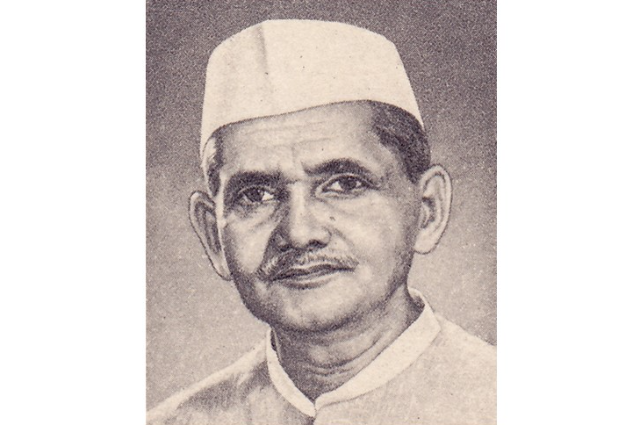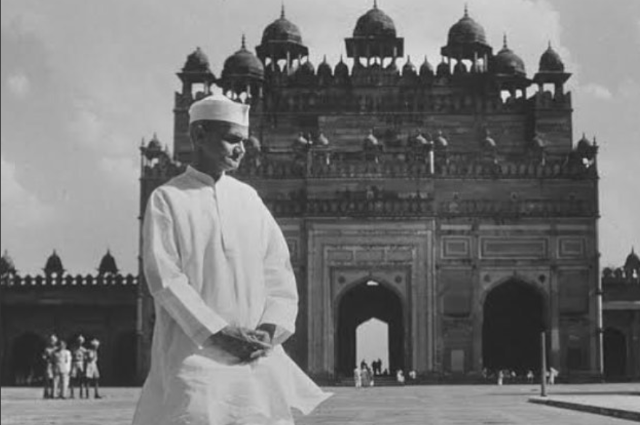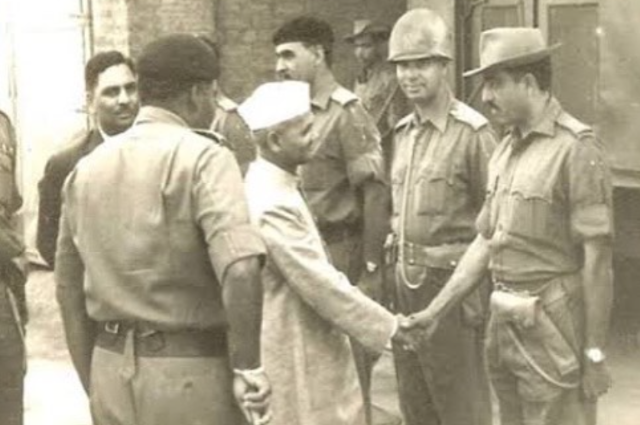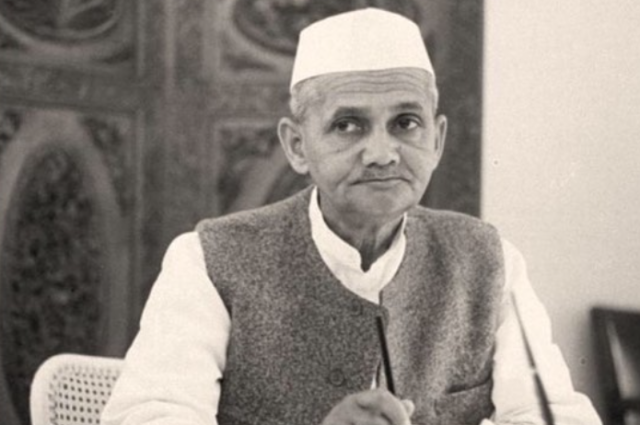
Source: wikimedia.org
In the age where everybody is running after power to subjugate others or to rule over others. In the age where power corrupts and absolute power corrupts absolutely. In the age where democracy is being trampled down and so are the citizens of the country. In the age where politics is considered to be dirty. In the age where politicians are becoming greedy to the extent where they forget about the responsibilities given to them by the citizens, we need someone like the former prime minister LAL BAHADUR SHASTRI. He’s the man untainted by power politics. The man with utmost simplicity. The man with the highest level of empathy. The man with the highest level of integrity and the man with a genuine love for his country and countrymen.
In this article, you’ll get to know some of the anecdotes from the life of this man of integrity.
Before starting, let me ask you a few questions.
Do you know during whose term, fans were provided in the third-class compartment of the railway? Do you know which home minister of India was called as “homeless home minister”? Do you know which prime minister used to wear torn kurta beneath his coat? Do you know which prime minister had a loan in his name even after his death?
So to find out the answers to the above question. Let's now move on to the anecdotal part.
Homeless Home Minister
Have you ever seen any big politician who doesn’t own his own house? I guess, no. Because as soon as someone acquires power, he starts to accumulate all the wealth and luxuries he can. Politics is considered to be the gateway to dreamland for many. Let's now take our attention to someone who despite being in politics for several years, never had his own house to live in. Yes, it was Lal Bahadur Shastri.
You’ll be surprised to know that Lal Bahadur Shastri had served as external affairs minister, home minister and railway minister before taking oath as the prime minister. So, when he was serving his term as a home minister he didn’t have a house of his own. He had rented a house in Allahabad, but the owner of the house later let it out that house to another family. When Shastri resigned as minister, he vacated the government quarter and he didn’t have any other place to live in, and that’s why he was called as ‘homeless Home minister’. This anecdote gives us a lesson that if you’re a man of integrity and simplicity, and if you’re true to your core values, no power on this earth can taint your personality.

Removing Disparities in Railways
Once Shastri was traveling in the first-class compartment of railways. On his travel, he later decided to look after the condition of other compartments. As he visit the third-class compartment, he saw the large-scale disparity in luxuries between first and third class. When he went back to his office(PMO), he decided to remove this disparity. So he converted four classes of railways into two, i.e. First and second class. Also, the basic luxuries were provided in the second class. It is to be noted that it was during his time that fans were provided in third-class compartments. This incident teaches a valuable lesson to all those who are in the power position to look after the needs of their subjects because it is those who bestow them with power. It also shows the commitment of Shastri towards the betterment of the masses.
Protest against the Caste System
Shastri was a staunch opponent of the caste system. He didn’t believe in the caste system, he gave up his surname when he was in the school itself. Now you would ask “where did the Shastri has came from then?”
Well, Shastri is not his real surname. The title ‘Shastri’ was bestowed on him upon graduating from Kashi Vidyapeeth, as a mark of scholarly achievement.
A compassionate, empathetic, and forward-thinking leader
Shastri was well connected to the general public of his country. He knew their grievances and pains. He had many pioneering initiatives to his credit. It was him, who had ordered to use water jets instead of lathi to disperse the crowd. He made it possible for women to be appointed as conductors in public transportation. He paved the way for India’s food self-sufficiency and promoted the white revolution. Due to this, India moved from being an importer of milk to an exporter. He had also laid down the foundation stone of the green revolution.

His ‘Leader First’ policy in
times of crisis
In 1965, when India was facing food shortages and was suffering from hunger. At this distressing time, he appealed to the citizens to have fast once a week and to grow wheat and rice in their backyard if possible. But before making this appeal to the citizens, he asked his own family to observe fast for a day to see if citizens can sustain this fast. When his family successfully did the fast, he turned towards the nation and made this appeal. Also, he did try to grow wheat and rice in his backyard for the same purpose. This incident marks the important lesson for the present leaders that in times of crisis, it is the leader who should take responsibility and stand tall before the nation.
Simple Living, High Thinking
When Shastri was getting married, he was forced by his in-laws to accept dowry, he rejected the proposal. But to show respect to in-laws, he asked them to give him charkha and some khadi clothes. In this way, he stood tall to his values without hurting the sentiments of elders. It is said that he used to wear torn kurta beneath his coat. When his coat used to be rigged, he used to make a handkerchief from it. Once his wife asked him to do away with this behavior as he’s the prime minister of the country. To this, he replied,
“Many people of my country live like this, why shouldn’t I ? I’m no different than them”.
It is surprising to know, when Shastri passed away, he reportedly had no property in his name and only left behind a few books and dhoti kurta.
Keeping himself at par with
common people
It might rarely have happened in any country where the highest citizen of the country had to take a loan, and that too merely for a car!
Shastri’s son tells an incident. Once he asked his father to buy a car as he’s the prime minister of the country and has no car of his own. On his insistence, Shastri decided to buy a car. But he didn’t have the required money, so he took the car loan of 5,000 from Punjab National bank. When his loan was approved early, Shastri told the bank,
“The common man should have the same privilege.”
It is said that he died at Tashkent in 1966 before he could repay the loan. The Bank wrote to his widow Lalita Shastri for repayment of the loan which her husband owed. She promised to pay back in installments from her family pension and she did.
The Fiat car still stands at his home, reminding him of the era of a "man of the highest integrity, honesty, and simplicity".
Genuinely taking Moral Responsibility
In 1956, two railway accidents happened. First in Andhra Pradesh and second in Tamil Nadu. After both the accidents, Shastri as a railway minister had taken moral responsibility for the accident and asked for resignation. In the first accident, his resignation was not accepted by Nehru while in the second one, Shastri asserted promptly his resignation and it was accepted at his request. In an era where deliberately cause distress to people and shies away from taking moral responsibility, this act of Shastri is something to be worth remembering.

Keeping personal and professional
life separate
Shastri had asked his son not to reveal his identity in school because he didn’t want to use his position for personal gains. He told his son not to tell anyone that his father is the prime minister of the country. Once, Shastri had been called to school by a school teacher of his son. As we know that teacher didn’t know who the father of this boy Is. So when he saw Shastri walking towards him, he got shocked. Later when he realized that Shastri was the father of that child, he said, “I never got to know that you’re his father otherwise I wouldn’t have called you”. To this, Shastri replied, “Treat him like all other kids, he’s just as special as others”.
Refusal to take pensions
After president Rajendra Prasad, Lal Bahadur Shastri was the only PM of the country who refused to take pensions and asked this pension money to be deposited in the calamity fund. Today the worth of pension would have been several crores of rupees. But this man had no greed for wealth. His love and dedication for his nation were above anything. This act of Shastri might seem strange in today’s world where greed among people leads to scams like 2G and chaara and the deposition of huge sums of black money into the foreign banks.
All these incidents hold special value and lessons for the present youth who measures everything by the yardstick of money, power, and fame. Shastri holds lessons of honesty, integrity, leadership, and simplicity for all generations alike. Nowadays we consider someone as our role model who is a billionaire, or who has a hell lot of popularity, or who has the world’s largest fan following. This shows that we give preference to materialistic things, we give preference to fame, not to values. Although It’s everyone’s personal choice to choose one’s role model. But in this world where almost everybody runs after money, we need someone who stays true to his values, who shows genuine love for his country. Who after his death, might not leave a huge sum of property, but will definitely leave a legacy that will guide the upcoming generation towards the greater good.
Shastri Ji is not alive today, but his values will always remain intact in the hearts of citizens.
